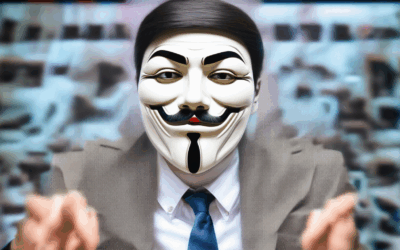In today’s digital age, the concept of anonymous communication has emerged as a cornerstone of modern discourse, offering individuals the freedom to express themselves without fear of reprisal. Free anonymous speech platforms have become vital tools for fostering open dialogue, enabling users to share thoughts and ideas without compromising their privacy. These platforms not only provide a safe space for expression but also empower individuals to engage in conversations that might otherwise remain silenced. From protecting whistleblowers to safeguarding personal freedoms, the role of anonymous communication platforms cannot be overstated. In this article, we delve into the intricacies of free anonymous speech platforms, exploring their benefits, challenges, and the broader implications for society. By examining how these platforms function and their impact on user empowerment, we aim to shed light on the delicate balance between privacy and accessibility in our increasingly connected world.
Key Takeaways
- Free Speech in Democracy: A cornerstone of democratic societies, free speech is not absolute and faces evolving boundaries to protect public safety and rights.
- Historical Evolution: Rooted in early colonial charters and enshrined in the Bill of Rights, free speech has expanded with judicial interpretations balancing individual freedoms and societal impacts.
- Online Challenges: Balancing free expression with managing harmful content remains a critical issue, involving platform regulations and content moderation.
- Technological Impact: Advances in technology raise concerns about privacy, accountability, and AI-driven censorship, reshaping free speech dynamics.
- Regulatory Balance: Free speech is regulated to uphold public order, security, and rights, while allowing necessary restrictions to protect vulnerable populations.
- Empowerment Through Anonymity: Anonymous platforms enable users to express controversial views, empowering them to share freely without identity exposure.
- Global Variations: Free speech online varies globally, influenced by differing laws, cultural norms, and platform policies, reflecting diverse societal values.

Can Free Speech Be Anonymous?
Free speech and anonymity are often discussed together, particularly in digital spaces. The question of whether free speech can be anonymous revolves around the tension between individual privacy and the public’s right to know.
Legal Perspective
In many countries, including the United States, the Supreme Court has recognized the right to anonymous free speech. This was famously established in cases like McIntyre v. Ohio (1995), where the court ruled that anonymous speech is protected under the First Amendment. The reasoning was that anonymity allows individuals to express themselves without fear of retribution, which is a cornerstone of free speech.
Benefits of Anonymous Free Speech
- Protection Against Retaliation: Anonymity shields individuals from potential harm, such as job loss or harassment, allowing them to express controversial opinions safely.
- Privacy Protection: In cases involving sensitive personal information, anonymity ensures that individuals can share their perspectives without exposing their private lives.
- Diverse Voices: Anonymous platforms often encourage a wider range of voices, including those who might otherwise feel marginalized or unsafe speaking openly.
Challenges and Limitations
While anonymous free speech has its advantages, it also presents challenges. Without accountability, it can be difficult to verify the authenticity of information shared by anonymous users. This can lead to misinformation spreading unchecked, though this issue is not unique to anonymous platforms.
Examples of Anonymous Free Speech Platforms
Many online forums and social media platforms allow users to post comments and participate in discussions anonymously. Examples include:
- AnonPost: A platform designed for sharing social commentary and personal views without revealing identity.
- 4chan and 8kun: Well-known boards where users discuss a variety of topics, often anonymously.
- Reddit and Other Community Platforms: While not entirely anonymous, these platforms allow users to post under pseudonyms or usernames.
- Twitter and Other Social Media: Many users choose to remain anonymous or use pseudonymous accounts to share their opinions.
Competitors and Alternatives
There are several platforms that offer anonymous free speech, each with its own community and rules. Competing platforms like Reddit , Anonews.it , and ProBoards cater to different audiences looking to express themselves anonymously.
Ultimately, the ability to speak freely while remaining anonymous is a fundamental aspect of internet culture, balancing the rights of individuals with the responsibilities of platforms to maintain order and accuracy.
Free Speech Platforms
Several platforms emphasize free speech, offering users the opportunity to express themselves without restrictions. Here are some notable options:
- Parler : Launched in August 2018, Parler positions itself as an unbiased platform that prioritizes free speech. It has gained popularity among those seeking an alternative to mainstream social media platforms like Twitter and Facebook.
- Mastodon : A decentralized social networking platform that operates on the principles of free speech. Unlike traditional platforms, Mastodon is not controlled by a single entity, giving users more control over their online presence.
- Gab : Known for its commitment to free speech, Gab is designed to foster community building and allow users to share their thoughts and opinions openly. However, it does enforce some content policies to maintain a respectful environment.
- AnonyPost : This platform allows users to express their thoughts and opinions anonymously, providing a space for open dialogue without fear of judgment. It encourages participation in discussions on various topics and offers a blog with diverse content.
These platforms cater to different audiences, each offering unique features and approaches to free speech. Whether you’re looking for anonymity, decentralization, or a community-driven experience, there are several options available to suit your needs.

Is There an Anonymous Social Media Platform?
Yes, there are several platforms designed for anonymous communication and social interaction. These platforms allow users to express themselves freely without revealing their identities.
Hush | Express Freely
Hush is a popular anonymous social media platform that emphasizes user freedom and privacy. Users can share thoughts, join discussions, and participate in communities without worrying about judgment or privacy concerns. The platform supports a wide range of topics, from social issues to lifestyle discussions.
Anonada
Anonada is another notable platform that focuses on decentralization and privacy. It allows users to post and interact anonymously while maintaining control over their data. The platform is known for its strong emphasis on community-driven content and decentralized governance.
Postbin
Postbin is a simpler yet effective anonymous platform. It enables users to share text, images, and other content without revealing their identities. The interface is clean and user-friendly, making it ideal for those seeking a non-judgmental space for expression.
Features of Anonymous Social Platforms
- Anonymity: Users can create posts and engage in conversations without revealing their real identities.
- Privacy Protection: Most platforms implement measures to protect user data and prevent misuse.
- Community Engagement: These platforms often foster supportive and inclusive communities.
- Diverse Topics: Users can discuss a wide range of subjects, from technology to mental health.
Choosing the Right Platform
When selecting an anonymous social media platform, consider factors like privacy features, community size, and content policies. Platforms like Hush, Anonada, and Postbin each offer unique benefits, so the choice depends on individual preferences and needs.
By exploring these platforms, users can find a space that aligns with their values and interests, allowing them to express themselves confidently and securely.

Is Freedom of Speech Still Free?
Freedom of speech remains a cornerstone of democratic societies, yet its boundaries and protections continue to evolve in the modern era. The First Amendment to the United States Constitution guarantees the right to free speech, religion, assembly, and association, ensuring citizens can express themselves without fear of government interference.
However, the concept of free speech is not absolute. It is subject to limitations intended to protect public safety, national security, and the rights of others. For instance, hate speech, incitement to violence, and certain forms of harassment are often restricted under the law. These limitations aim to balance individual freedoms with societal responsibilities.
Historical Context
The foundation of free speech in the U.S. was established by early settlers and later enshrined in the Bill of Rights. Early colonial charters protected the right to speak freely about government officials, a precursor to modern-day freedom of speech. Over time, judicial interpretations have expanded the scope of protected speech, though always with careful consideration of broader societal impacts.
Current Challenges
In today’s digital age, freedom of speech faces new challenges. Online platforms regulate content to combat misinformation, hate speech, and cyberbullying. While these measures aim to safeguard public discourse, they sometimes draw criticism for limiting free expression. The debate over balancing free speech with accountability for harmful content continues to rage.
Additionally, global perspectives on free speech vary significantly. Some nations impose strict controls over speech deemed offensive or politically sensitive, while others advocate for greater openness. This divergence highlights the complex nature of free speech in a interconnected world.
The Future of Free Speech
As technology advances, new questions arise about the role of free speech in shaping society. Issues like AI-driven censorship, data privacy, and the influence of social media platforms on public discourse demand careful consideration. Ensuring that free speech remains free while addressing its potential harms will likely require ongoing dialogue and legislative action.
Ultimately, freedom of speech remains a vital pillar of democracy, but its practice evolves to meet the demands of a changing world. Balancing individual rights with collective responsibilities ensures that free speech continues to thrive while fostering a more informed and inclusive society.
Is Free Speech Truly Free?
Free speech is often celebrated as a cornerstone of democracy and individual liberty. However, its true nature is complex and subject to debate. While many view free speech as unrestricted, it is governed by legal and ethical boundaries that limit its scope.
Key Points About Free Speech Limitations
- Hate Speech: Many societies prohibit expressions that incite violence or discrimination against groups based on race, religion, gender, or other characteristics. Laws aim to protect vulnerable communities while balancing free expression.
- Defamation: Spreading false information that harms individuals or organizations can lead to legal consequences. This protects people’s reputations and rights to dignity.
- Incitement to Violence: Speech that directly advocates for illegal actions, such as committing crimes, may be restricted to prevent harm.
- Intellectual Property Rights: Copyright laws protect original content, limiting free speech in certain creative domains unless fair use or permission is obtained.
Free Speech vs. Regulation
While free speech is protected in many countries, its extent varies. Governments often regulate speech to maintain public order, national security, and respect for human rights. These regulations aim to strike a balance between individual freedoms and collective interests.
The Impact of Technology on Free Speech
Modern platforms offer unprecedented opportunities for free expression but also raise concerns about privacy and accountability. Online speech can spread quickly, influencing public opinion and potentially inciting real-world events. Platforms themselves often impose community guidelines to manage content responsibly.
Ultimately, free speech is not absolute. Its boundaries are shaped by societal values, legal frameworks, and the need to protect vulnerable populations. Understanding these complexities helps us appreciate the nuanced nature of free speech in contemporary society.

Is There Free Speech Online?
The question of free speech online is a complex issue that involves legal, cultural, and technological factors. While the concept of free speech is protected in many countries under their constitutions or laws, the implementation and enforcement of these rights online can vary significantly.
Legal Protections
In many jurisdictions, free speech online is protected by laws that aim to prevent censorship and regulate digital platforms. For example, in the United States, Section 230 of the Communications Decency Act provides immunity to online platforms for user-generated content, allowing individuals to express themselves freely without fear of legal repercussions from the platform itself. Similar protections exist in other countries, though the specifics may differ.
Anonymity and Privacy
An important aspect of free speech online is the ability to remain anonymous. Platforms like AnonyPost allow users to share their thoughts and opinions without revealing their personal identities. This anonymity can empower individuals to express controversial or minority viewpoints that they might otherwise hesitate to share in public forums.
Self-Regulation and Community Standards
While legal frameworks provide a foundation for free speech online, platforms often implement their own rules and policies to manage content. These guidelines can lead to debates about the balance between free expression and community standards. For instance, certain forms of hate speech or illegal activities may be restricted, even if such content would be protected offline.
Global Variations
Free speech online also varies by region due to differing laws and cultural norms. Some countries impose strict regulations on internet usage, limiting access to information and platforms that promote free speech. Conversely, countries with strong free speech traditions often have more permissive online environments.
Conclusion
In summary, free speech online is generally protected in many parts of the world, thanks to legal safeguards and the nature of digital platforms. However, the extent of these freedoms can vary depending on local laws, cultural values, and platform policies. The ability to express oneself anonymously, coupled with responsible self-regulation, helps maintain a vibrant and diverse online environment.




0 Comments